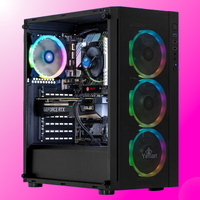Internet speed record of 402,000,000 Mbps achieved using standard optic fibre cabling, fast enough to download Baldur's Gate 3 in less than four milliseconds
A gaming PC with the fastest CPU, DDR5 RAM, and Gen5 SSD would be a massive bottleneck though, so there's no chance you could use this at home.

Readers of a certain age may well remember when having a 56 kbps internet connection was considered fast. Then DSL came along and dial-up looked like a comatose snail in comparison. A team of engineers, though, have achieved a data transmission rate of 402 Tbps using standard fibre optic cables, so fast that you could download Baldur's Gate 3, Red Dead Redemption 2, and the entire Fallout 4 collection all in less than a tenth of a second.
The team in question is Japan's National Institute of Information and Communications Technology (via Fudzilla) and it didn't use any weird tech or microscopic distances in a lab—50 km of commercially available optical fibres and signal amplifiers were employed in the test. At an estimated peak rate of 402 Tbps or 50.25 TB/s, it's approximately 25% higher than the previous record, set last October.
Optical fibres are used as the backbone of the Internet around the world and work by sending digital information via modulated infrared, light, and ultraviolet signals. What NICT did was to employ as many transmission bands as possible, along with cutting-edge amplifiers and gain equalisers, to reach a total signal bandwidth of 37.6 THz. That's over 100,000 times more bandwidth than WiFi 7 can utilise, for example.
Of course, nobody will be getting a 400 Tbps home broadband connection any time soon. The cost of the current setup is far too prohibitive for general users, but the development will certainly be of interest to the industry as a whole, as the amount of data being demanded on tap via the web is gargantuan.
But let's assume for a moment that you could have such a home broadband package. Could you really download multiple 150 GB games in less than a second? Sadly, no, as there are multiple bottlenecks inside even the very best gaming PCs, starting with the Ethernet port.
You might be fortunate to have a motherboard equipped with one that's rated at 10GbE or 10 Gbps, but that's slower than NICT's achievement by a factor of around 400,000.
Even if you found some way around that issue (and the PCH bus bottleneck), then you're either going to be limited by the speed of your gaming PC's RAM or SSD. They simply aren't able to write data fast enough to keep up. A top-end rig can easily cope with a nice 1 Gbps home fibre connection but there's no chance of it coping with 412,000 Gbps!
The biggest gaming news, reviews and hardware deals
Keep up to date with the most important stories and the best deals, as picked by the PC Gamer team.
Not yet, at least. A gaming PC from the 56k dial-up era would be a huge bottleneck on a modern DSL connection, so you never know—give it a couple more decades and we could all be moaning about how slow our 400 Tbps ultra-broadband is. Mind you, games will probably be a lot bigger than 150 GB by that point, too.
It's funny how progress in PC tech sometimes never feels like progress.
Best gaming PC: The top pre-built machines.
Best gaming laptop: Great devices for mobile gaming.

Nick, gaming, and computers all first met in 1981, with the love affair starting on a Sinclair ZX81 in kit form and a book on ZX Basic. He ended up becoming a physics and IT teacher, but by the late 1990s decided it was time to cut his teeth writing for a long defunct UK tech site. He went on to do the same at Madonion, helping to write the help files for 3DMark and PCMark. After a short stint working at Beyond3D.com, Nick joined Futuremark (MadOnion rebranded) full-time, as editor-in-chief for its gaming and hardware section, YouGamers. After the site shutdown, he became an engineering and computing lecturer for many years, but missed the writing bug. Cue four years at TechSpot.com and over 100 long articles on anything and everything. He freely admits to being far too obsessed with GPUs and open world grindy RPGs, but who isn't these days?


